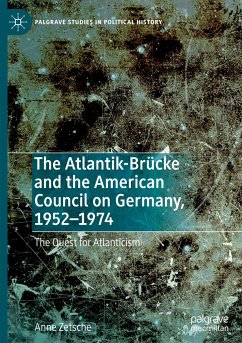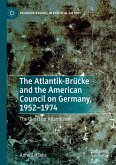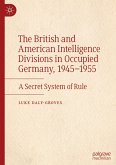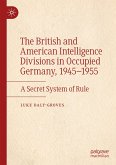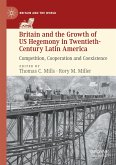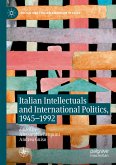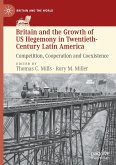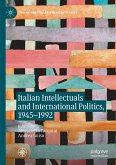""Based on impressive multi-archival work and a keen sense for a good narrative, the author introduces us to the complex, interlocking networks of the littleknown Atlantik-Brücke and the American Council on Germany. A fantastic addition to our understanding of the 'Transnational Transatlantic' in the 20th century"
- Giles Scott-Smith, Roosevelt Chair in New Diplomatic History, Leiden University, The Netherlands
"An original and insightful book exploring how two transatlantic networks worked to improve and solidify West Germany's relationship with the United States in the aftermath of World War II- transnational history at its best."
- Deborah Barton, Assistant Professor of History, University of Montreal, Canada
Revisiting the relationship between the USA and Germany following the Second World War, this book offers a new perspective and focuses on the influence of two organisations in accelerating West Germany's integration into the Atlantic Alliance. Tracing the Atlantik-Brücke and the American Council on Germany's (ACG) origins to the late 1940s and tracking their development and activities throughout the 1950s-70s, this book covers new ground in German-American historiography by bridging public and private relations and introducing central actors that have previously been hidden from academic debate. The author unveils and examines dense transatlantic elite networks that allowed Germany to re-join the 'community of nations,' regain sovereignty, and become a trusted member of the North Atlantic Treaty Organisation (NATO). Analysing transatlantic relations through the lens of the intertwined history of the Atlantik-Brücke and the ACG, this book explores public-private networks on a transnational level, providing valuable reading for those studying political history, European and American post-war relations and the Cold War.
- Giles Scott-Smith, Roosevelt Chair in New Diplomatic History, Leiden University, The Netherlands
"An original and insightful book exploring how two transatlantic networks worked to improve and solidify West Germany's relationship with the United States in the aftermath of World War II- transnational history at its best."
- Deborah Barton, Assistant Professor of History, University of Montreal, Canada
Revisiting the relationship between the USA and Germany following the Second World War, this book offers a new perspective and focuses on the influence of two organisations in accelerating West Germany's integration into the Atlantic Alliance. Tracing the Atlantik-Brücke and the American Council on Germany's (ACG) origins to the late 1940s and tracking their development and activities throughout the 1950s-70s, this book covers new ground in German-American historiography by bridging public and private relations and introducing central actors that have previously been hidden from academic debate. The author unveils and examines dense transatlantic elite networks that allowed Germany to re-join the 'community of nations,' regain sovereignty, and become a trusted member of the North Atlantic Treaty Organisation (NATO). Analysing transatlantic relations through the lens of the intertwined history of the Atlantik-Brücke and the ACG, this book explores public-private networks on a transnational level, providing valuable reading for those studying political history, European and American post-war relations and the Cold War.
"Zetsche's work is the first academic monograph on these transatlantic organizations ... and will therefore be of great interest to scholars focusing on the Atlantic alliance in general and postwar relations between the U.S. and the Federal Republic in particular. Zetsche's pioneering study is all the more impressive, since neither organization has an archive holding its records ... ." (Jasper Trautsch, H-Soz-Kult, hsozkult.de, September 21, 2022)

